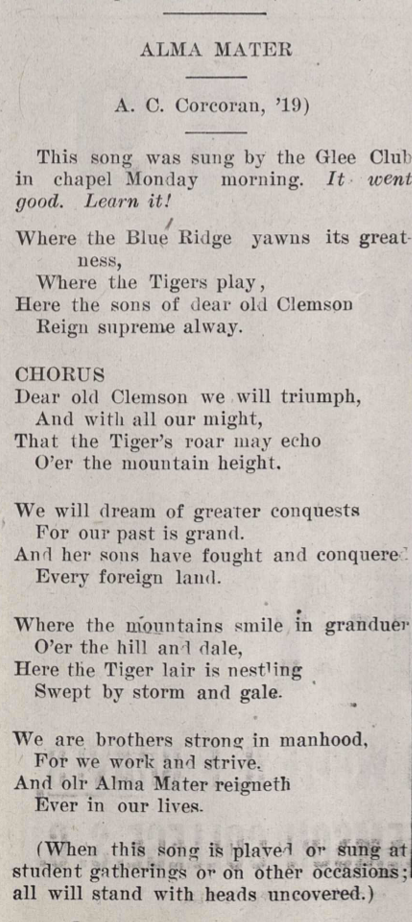The interpretation of the Constitution has come to the forefront in light of the pending vote/filibuster on Judge Neil Gorsuch, Trump’s nominee to the U.S. Supreme Court. A vote will likely come this week with or without a democratic filibuster.
Democrats have no way to stop Gorsuch; I firmly believe he will be Justice Gorsuch by Friday. While there is an understandable level of concern from Liberals in the Senate — do not waste your time with the first nominee. Gorsuch will not change anything. The Supreme Court will rule just as it did when Scalia was alive. Save your energy for the next appointee, for when a Liberal such as Justice Ruth Bader Ginsburg passes, then you will really be losing something. Do not force Majority Leader Mitch McConnell to dissolve the filibuster over a nominee that would replace a justice of the same ideology.
Constitutional interpretation is one of the most revealing and defining characteristics of a justice/nominee. I consider myself an originalist, yet this week as I watched the confirmation hearings unfold and the pundits opine, I absorbed a multitude of knowledge.
The most significant argument that I have heard opposing originalism is the “dead hand of the past” argument. In layman’s terms, it disapproves of the interpretation of the most legally sovereign document in American history through asking ourselves how the Founding Fathers would have decided the case at hand. This is a fallacious argument against originalism. Originalism is not about what the Founding Fathers would do about an issue. Several were slave owners; I doubt they would be satisfied with the outcome of Brown v. Board of Education. Originalism is not looking at how the Founding Fathers would handle an issue, but is about what the text they created specifically says about the case at hand.
I submit the language is at times open for interpretation and ambiguous. Yet what text is a living constitutionalist bound to if he/she believes the document is so open to interpretation that they can effectively stray away from it? One may ask if he/she is even bound to the Constitution.
As I was watching the hearings, the most significant anecdote I heard was from Lawrence Solum, a legal theorist and law professor at Georgetown University. He stated he is neither a Republican nor a Conservative yet still an originalist. He posed a question to Democrats: is it better to have a living constitutionalist Conservative who will disregard and bend the text of the Constitution only to reach verdicts that push his/her agenda and set precedent he/she agrees with due to the living, breathing nature of the Constitution? A judge of this sort is perpetual with his/her agenda-driven rulings. Or, is it better to have an originalist Conservative who will be bound to the text and arrive at opinions that are not only based in fact but based in precedent and historical text?
It seems to me, the only time Liberals desire living constitutionalism is when a liberal justice employs it.
Take Chief Justice John Roberts’ heroic saving of the Affordable Care Act in National Federation of Independent Business v. Sibelius, for example. Roberts saved the bill because he declared the mandate a tax, not a mandate. He totally disregarded the text of the bill and interpreted it as he saw fit. This was a flash of living constitutionalism that saved an unconstitutional law. Therein lies danger of a conservative living constitutionalist. Now I realize the text of the ACA is not the Constitution, but the point is that Roberts employed the aforementioned method of interpretation.
In his majority opinion in the landmark case District of Columbia v. Heller, Justice Scalia, a zealous defender of originalism, was criticized for using living constitutionalism to reach his ruling. Scalia basically said the Second Amendment should not apply to only those serving in a government military force, but to “all able-bodied men.” He is said to have read the text to imply the “greatest meaning,” therefore it could not be originalism. If this logic is correct then it should apply just as Roberts’ interpretation did. If Liberals want to play the game of living constitutionalism, they should not get mad when the opposition employs the same strategy.
The same argument can be made for a liberal living constitutionalist. His/her interpretation method is a leaf in the wind of the Supreme Court bar, bound to no tree of the text of the Constitution, forever flowing in the wind with no solid base upon which to land – one day ruling this way, one day the next. Today a conservative living constitutionalist rules one way, the next a liberal living constitutionalist strikes down his/her ruling. This is not the manner in which the Supreme Court should run.
It all comes back to the question posed by Solum: why should a liberal want a living constitutionalist? Be happy Gorsuch is an originalist and thereby bound to the text of the Constitution.
I support Gorsuch, not because his political ideology is congruent with my own, but because of his originalist nature. Originalism is the foundation upon which a formidable Supreme Court opinion should be built. As Gorsuch himself said, a judge should never agree with all of the opinions he/she comes to. If that happens, he/she has failed the duty of a judge.
Categories:
How Gorsuch’s originalist view of the Constitution is good for both parties
Mark Hinds, Contributor
April 3, 2017
0
Donate to The Tiger
Your donation will support the student journalists of Clemson University. Your contribution will allow us to purchase equipment and cover our annual website hosting costs.
More to Discover






